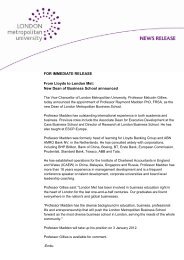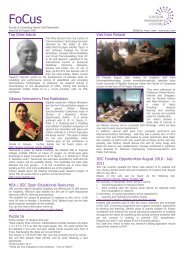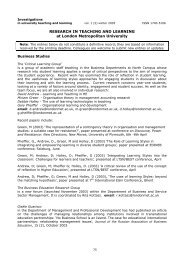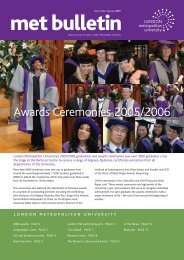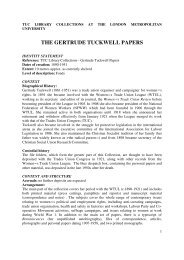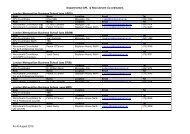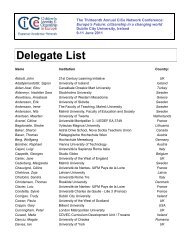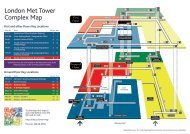prente-n - London Metropolitan University
prente-n - London Metropolitan University
prente-n - London Metropolitan University
You also want an ePaper? Increase the reach of your titles
YUMPU automatically turns print PDFs into web optimized ePapers that Google loves.
1.2 Introduction to the Course<br />
2<br />
The MSc Professional Engineering and Technology course is entirely work-based and will give professionals<br />
the opportunity to learn quickly without leaving their work. The course includes a wide range of flexible<br />
options, which allow students to combine their prior experience and to continue working on their current<br />
business tasks as a part of their study. This way, studying for a higher academic degree will help them to<br />
reflect on their own work and to find possibilities to run their business more efficiently, which can boost their<br />
career to a new professional level.<br />
The course assumes that the students have work and wish to prepare themselves for a career path related to<br />
their work. It is expected that after finishing this course the students will be able to pursue a professional<br />
career on a senior level. Although successfully finishing the course does not guarantee the position<br />
anticipated, typical positions which might be suitable targets are: System Architect, System Administrator,<br />
Project Manager, Software Development Team Leader, Business Process Line Manager and all intermediate<br />
positions up to CIO and CEO.<br />
The course takes from one to six years to complete and can be studied part-time without interrupting the<br />
students’ work. If for whatever reason the students are unable to complete their study they can be awarded<br />
one of the two intermediate awards (Postgraduate Certificate in Professional Technology and Engineering<br />
and Postgraduate Diploma in Professional Technology and Engineering).<br />
1.3 Key Features of Postgraduate Courses<br />
The Course Specification (see Section 8) details your course curriculum and structure and you should study<br />
this carefully. Many features are defined by the Postgraduate Regulatory Framework, part of the <strong>University</strong>’s<br />
Academic Regulations (see Section 10.1 of this handbook for details), which sets out general features<br />
common to almost all Masters courses.<br />
(i) Full-time students starting Masters programmes in the Autumn semester are taught over a 48week<br />
year (an autumn and a spring semester and a summer studies period), requiring<br />
approximately 40 hours of study per week. For full-time students starting courses in February the<br />
workload is similar but is distributed over a longer study period and normally completed at the end<br />
of the following Spring semester. Part-time students undertake the equivalent overall workload<br />
over a longer period of study, normally at least two years.<br />
(ii) The standard Masters award requires 180 credits at level M: normally 120 credits for the taught<br />
elements and 60 credits for the Dissertation or Project. There are some exceptions to the rule,<br />
such as specified Masters courses in Human Resource Management, which require 180 credits,<br />
and the MBA at 220 credits.<br />
(iii) Most postgraduate modules are equivalent to 20 credits. Typically, a full-time student studies<br />
modules equivalent to 60 credits per semester (normally 3 modules), with 15 weeks of teaching,<br />
revision and assessment activities for each module.<br />
(iv) The taught elements of postgraduate courses are mainly compulsory “core” modules and normally<br />
include one concerned with research methodology and project development and practice, in<br />
preparation for the dissertation or project. Some courses may include “designate” modules, which<br />
can be chosen from a specified list for the course, or “elective” modules, which can be chosen from<br />
any available at postgraduate level.<br />
(v) All taught modules and the dissertation or project module, are marked on a percentage scale, with<br />
a pass/fail threshold of 50%.<br />
(vi) Based on the final aggregate of average percentage results, Masters awards are graded as:<br />
Masters (50-59%), Masters with Merit (60–69%), or Masters with Distinction (70% plus)




